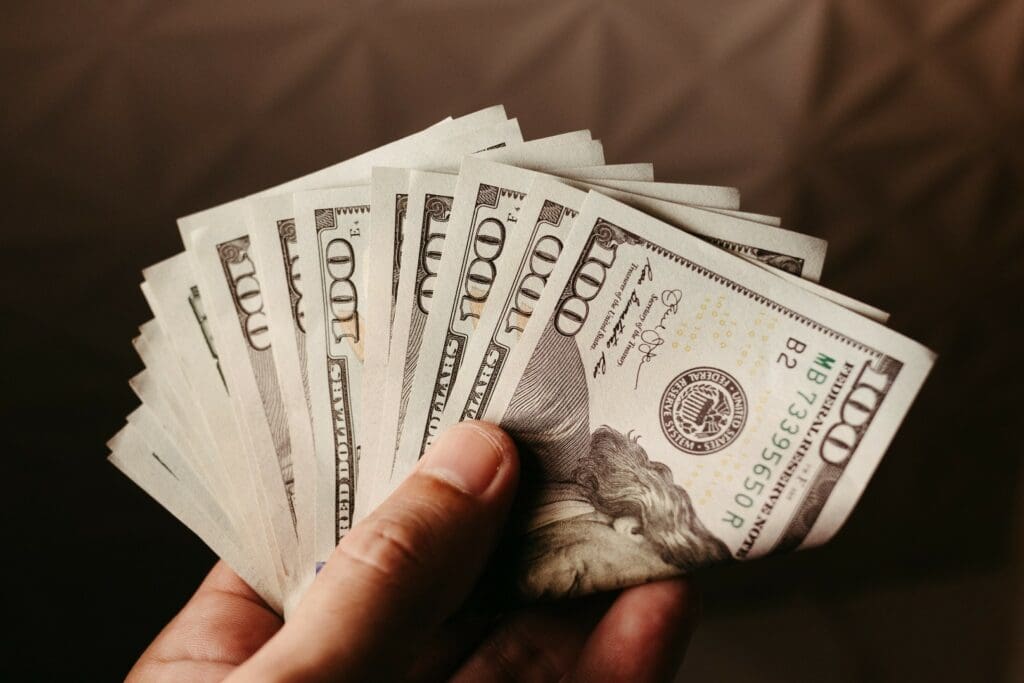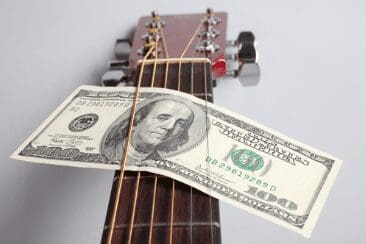Making music is a lot of fun. It is a creative and beautiful-sounding form of expression and acts as something many people can relate to globally. It’s one of the finest forms of art there is. But many songwriters and composers don’t actually know if they’re getting all the performance royalties they deserve.

This is where Publishing Rights Organisations (PROs) come into play and is precisely why we’re talking about ASCAP (the American Society of Composers, Authors and Publishers) in today’s article.
Are you releasing new music?
Book a meeting with a Music Gateway A&R today.
Discuss release strategies, distribution, growing your fanbase, organic playlisting, press, radio and more.
What is ASCAP?
ASCAP, as mentioned before, is a PRO. As a not-for-profit organization, ASCAP collects performance royalties and pays them to songwriters, composers, and publishers when their music is played publicly — whether that’s in a bar, streamed in a shop, broadcast on TV, performed at a concert, or aired on the radio.
Having a PRO membership is essential for U.S.-based musicians. Without one, you’re not entitled to collect performance royalties — meaning you could be leaving money on the table every time your track gets played.
With over 900,000 members and more than 17 million songs and compositions licensed to businesses, ASCAP remains one of the most trusted organizations in music rights. Its members include legendary names like Andrew Lloyd Webber, Mariah Carey, Madonna, Stevie Wonder, Metallica, and Korn.To learn more about becoming a successful songwriter, check out this guide on how to get famous for singing.
A brief history of ASCAP:
It all started way back in 1914 when a bloke called Victor Herbert paid a visit to a hotel. Here, he heard a musician playing a piece of music that Herbert himself had written, which – low and behold – he had not been paid for. Naturally, he felt this rather unfair. This sparked Herbert’s passion for supporting musicians’ rights when it came to the live performance of their work. Musicians deserve royalties!
From here on out, Herbert dedicated his life to protecting musicians’ music. With his raw passion and high spirits, he organised musicians into a collective to draw the attention of this copyright problem to the policymakers. This has an impact on the passage of the 1909 Copyright Law of the United States which allowed composers to get royalties for the sales of recorded music.
Herbert was born in Ireland but studied music in Germany. Here, he became a talented cellist and composer. He and his wife – opera singer Therese Foerster – moved to New York in 1886 where Herbert then made a name for himself as a composer for operettas (these were romantic comedies with singing and dancing). His most famous work is Babes in Toyland which opened in 1903 and was said to be inspired by The Wonderful Wizard of Oz.
Herbert remained director of ASCAP until he died in 1924. The current president is now American songwriter, singer and actor, Paul Williams.
Today, ASCAP continues to protect the rights of musicians and songwriters globally, by licensing and paying royalties for public performances.

Benefits of an ASCAP Membership
1. Royalties
ASCAP ensures that songwriters and composers receive the performance royalties they’ve earned when their music is used. It’s that simple — if your music is played publicly, ASCAP tracks that usage and pays you for it.
2. Services
ASCAP offers an impressive suite of services for its members, including legal support, marketing assistance, access to music supervisors and publishers, and industry networking opportunities.
Learn more about copyrighting your music and protecting your work properly.
3. Online Portal
Through ASCAP’s Online Member Access, you can track royalties, register new songs, manage account settings, and more. It’s an intuitive tool that makes managing your career as a rights-holder easier than ever.
4. Values
ASCAP is built on a foundation of transparency, advocacy, and fairness. They’re on your side and exist to make sure your creativity is protected — and compensated.
ASCAP Login
Already a member? You can log in to your ASCAP account here: ASCAP Member Login
Manage your royalties, register songs, and access support all in one place.
How Does It Work? ASCAP’s Royalty Distribution System
ASCAP collects performance royalties from any business or platform that publicly uses music — including venues, broadcasters, digital services, and more. They track and monitor usage using a combination of digital fingerprinting, surveys, and reporting tools.
Collected funds are then distributed to members based on how often their works have been played. ASCAP also provides data and insights on usage so you can better understand where your income is coming from.

How Much Does an ASCAP Membership Cost?
ASCAP charges a one-time fee of $50 to register as a writer, and another $50 if you want to register a publisher account. You can also register both for $100 — and that’s it. No annual fees or renewals.
Considering the potential return from royalty income, this is a small investment in your professional career as a music creator.
Resources for Writers and Publishers
1. Songwriter Services
Through ASCAP, you’ll gain valuable access to songwriter resources, copyright help, and connections to established professionals. Also explore Music Gateway’s songwriter hub and this profile of David Lee, songwriter.
2. Publisher Services
ASCAP helps music publishers register their works, manage rights, and get paid. You can also learn about the industry through Music Gateway’s guide to music publishing companies.
3. Member Benefits
ASCAP members get access to health insurance discounts, gear deals, music software, conferences, and exclusive industry events.
4. Music Licensing
Music licensing is a powerful source of income. Learn how to make the most of it in this guide to sync licensing and cover song licensing.
5. Educational Resources
Keep learning with Music Gateway’s music business blog, offering tips, trends, and music career strategy.

What a PRO Won’t Do for You
It’s important to know where a PRO’s role begins and ends. Here’s what they won’t handle:
- Mechanical Royalties: Collected by distributors or publishing administrators.
- Sync Licensing Fees: Paid by content creators or sync licensing agents directly.
- Digital Performance Royalties (e.g. Pandora): These are collected by SoundExchange, not your PRO.
For more help on navigating the industry, check out Music Gateway’s guide.
What is Music Publishing?
Music publishing is all about copyright ownership and monetising your work. Publishers register your songs, collect royalties, and pitch them for commercial use — such as in ads, movies, or streaming platforms. Learn more in this in-depth music publishing guide.
What Are Music Publishing Companies?
Companies like Universal Music Publishing Group, Kobalt, and Songtrust handle royalty collection, licensing, and international registration. If you’re looking for partners to help with royalty tracking, sync deals, and admin, publishers can be a great asset.
What Is an ASCAP License?
An ASCAP license is what gives businesses, broadcasters, and venues the legal right to publicly perform copyrighted music owned by ASCAP’s members — which includes over 17 million songs from some of the world’s most famous songwriters and composers.
If you’re a business that plays music in any public capacity — whether in a café, restaurant, gym, retail store, radio station, or streaming service — you’ll need a blanket performance license from ASCAP. Without it, playing music publicly is technically copyright infringement, and you could face hefty fines or legal action.
The license ensures that the music creators — the songwriters, composers, and publishers — are fairly compensated for the use of their work. And because ASCAP represents such a vast catalogue, the license covers nearly every genre, era, and mood imaginable.
Who Needs an ASCAP License?
If you:
- Play music over speakers in your shop or salon
- Host live bands or DJs
- Run a bar or nightclub
- Stream music on hold for your phone system
- Broadcast radio, television, or online streams
Then you likely need a license. Even small businesses that use Spotify or YouTube in a public setting must be properly licensed — consumer streaming subscriptions do not cover commercial use.
What Does the License Cover?
An ASCAP license gives you access to perform any music in the ASCAP repertory — a vast and diverse library of millions of songs. This includes:
- Live performances
- DJ sets
- Background music (even through a third-party service)
- Radio and TV broadcasts
- Online performances and livestreams
It’s designed to be simple — one license, endless music.
What is the Difference Between ASCAP vs BMI?
Similarities:
- Collect and distribute performance royalties
- Offer songwriter tools, portals, and discounts
- Pay about 88% of collected royalties to members
- No recurring annual fees
Differences:
- ASCAP charges a one-time $50 fee; BMI writer registration is free
- BMI claims a larger music catalogue (~14M+ works)
- ASCAP pays ~6.5 months after quarter ends; BMI pays in ~5.5 months
- Each has different royalty calculation systems
Who Pays More?
It depends. Some claim BMI pays more overall, especially for certain usage types. But ASCAP has arguably stronger resources, a broader network of partnerships, and more transparent reporting.
Which Has an Easier Signup Process?
Both are easy.
- ASCAP Signup: Takes 10 minutes, $50 fee
- BMI Signup: Free for writers, $150–$250 for publishers
Which PRO Should You Choose?
Do your research. Ask yourself:
- Where will your music be played?
- Do you need publishing help or sync support?
- Are member benefits important to you?
Check out more advice for artists navigating the music industry.
ASCAP’s Socials
Stay connected with ASCAP here:
Facebook | Twitter | Instagram | YouTubeThey also have a mobile app — ASCAP Mobile — for managing your account, searching for songs, and exploring the music of fellow members.
Are There Cons To Being an ASCAP Member?
Rumour has it, yes – there are a couple.
ASCAP seems to pay based on a ‘sample survey’, meaning that if your music wasn’t utilised when they conducted their survey, you won’t get paid for the music placements. So this one certainly isn’t a pro…
ASCAP also won’t pay you unless you have a publisher’s account, which makes it super tricky for small-time music-makers.
What Is BMI & Who Are They?
Broadcast Music Inc (BMI) is almost a direct competitor to ASCAP. They are another Performance Rights Organisation that started a little later than ASCAP in 1939. BMI has over 500,000 members within its organisation and continues to grow. Some famous BMI members include Kendrick Lamar, Lady Gaga and Sam Smith.
Who Pays More?
The most important question for a lot of us. Who pays more: BMI or ASCAP?
Well, BMI pays more to their members overall – and it especially benefits those in sync licensing. Maybe this is due to BMI’s impressive amount of members and songs. Some say they pay the same, but there is no solid way of knowing for definite.
Who has an easier signup process: ASCAP or BMI?
The signup process for both of these companies is easy as cake and takes only a few minutes to do on their websites. You can sign up for free as a songwriter on the BMI website, however, if you are a publisher you must fill out an application and pay a fee of $150-250.
Which PRO Should You Go for: ASCAP or BMI?
This is going to come down to personal preference. They both do the same exact same thing, which is making sure composers are rightly compensated for public performances of their music. Both PROs offer excellent services and resources, as well as amazing events and networking opportunities.
But it will simply come down to this. If you want to choose the right PRO for you: do your research. Find your best fit. Ask yourself what you want to get out of a PRO membership. What perks and benefits are you after and what would suit you best as a music maker and professional?
There is no one size fits all in these situations, it’s always dependent on the person.









